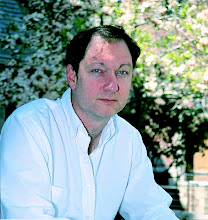Copying is the sincerest form of flattery?
Crime rose significantly after the gun ban went into effect. In the five years before the 1976 ban, the murder rate fell to 27 from 37 per 100,000. In the five years after it went into effect, the murder rate rose to 35. In fact, while murder rates have varied over time, during the 30 years since the ban, the murder rate has only once fallen below what it was in 1976.
From a piece that I wrote in 2004
Crime rose significantly after the gun ban went into effect. In the five years before Washington's ban in 1976, the murder rate fell from 37 to 27 per 100,000. In the five years after it went into effect, the murder rate rose back up to 35. . . . In fact, while murder rates have varied over time, during the almost 30 years since the ban, the murder rate has only once fallen below what it was in 1976.
This involves only three sentences that total 172 words in the piece, but it is still a little irritating. There were two changes in what I wrote: 1) because three years have gone by since I wrote the original piece the "almost 30 years" that I wrote was changed to "30 years" and 2) "fell from 37 to 27" was changed to "fell to 27 from 37." Otherwise it was identical. The first change is most troublesome because it indicates that Cox (or someone who wrote it for him) probably looked at what I wrote and the date on it in order to make the change.
This is getting to be a fairly common "crime" these days for example with Law Professor Ian Ayres being one of the more recent people caught:
“Several passages in Yale Law School professor Ian Ayres ... new book are unattributed verbatim reproductions or nearly identical paraphrases of passages from various newspaper and magazine articles published in the last twenty years, an investigation by the [Yale Daily] News has shown."
Yet, as some have noted in Ayres' case, "The problem with [Ayres'] explanation---whether used by Ayres or the others---is that it explains how a verbatim quotation can end up unattributed but is not so credible in explaining how an almost-verbatim paraphrase ends up unattributed. . . . But paraphrases in which the sentence structure is altered ever so slightly is much harder to explain as the result of inadvertence."
Labels: IanAyres, Other, plagiarism






